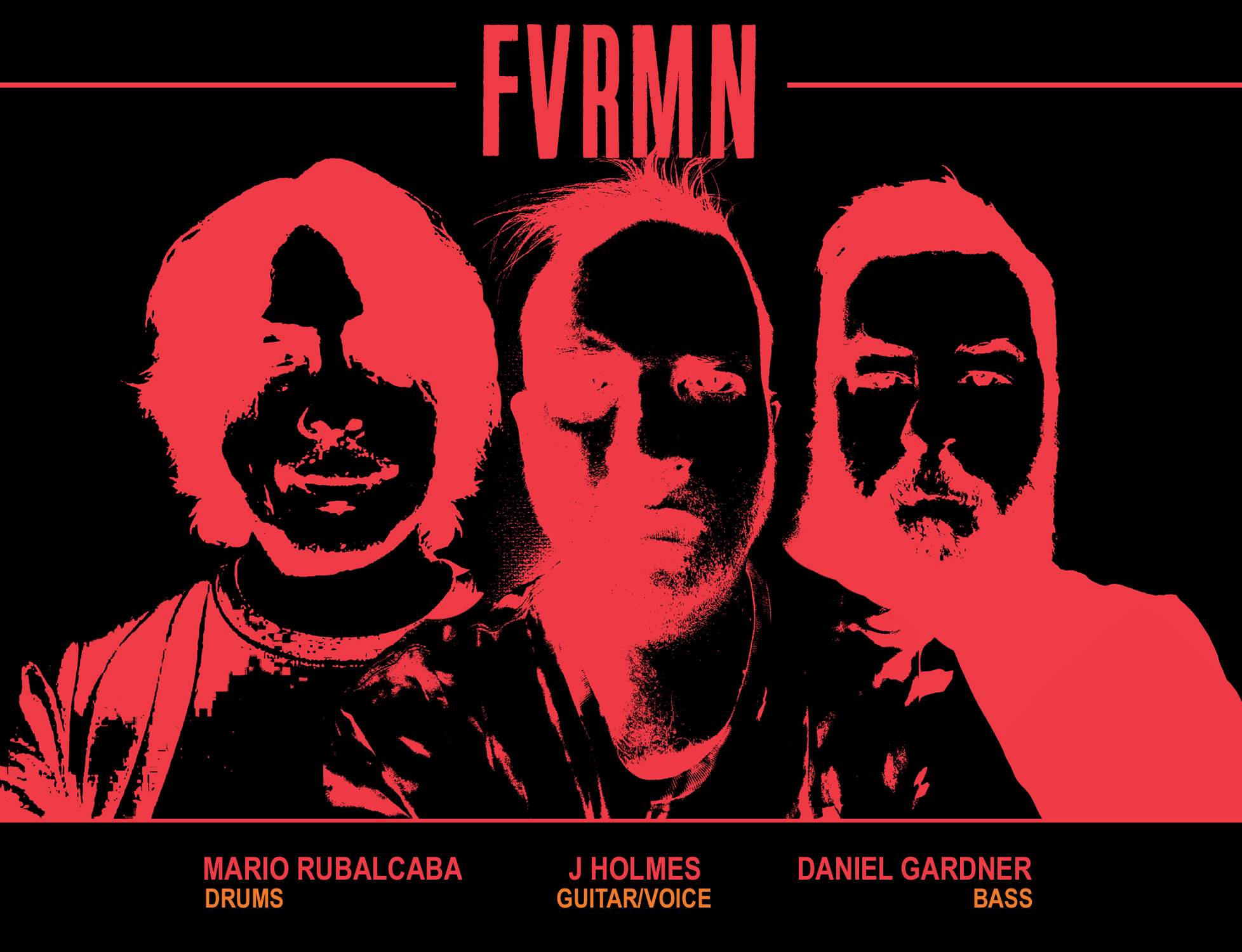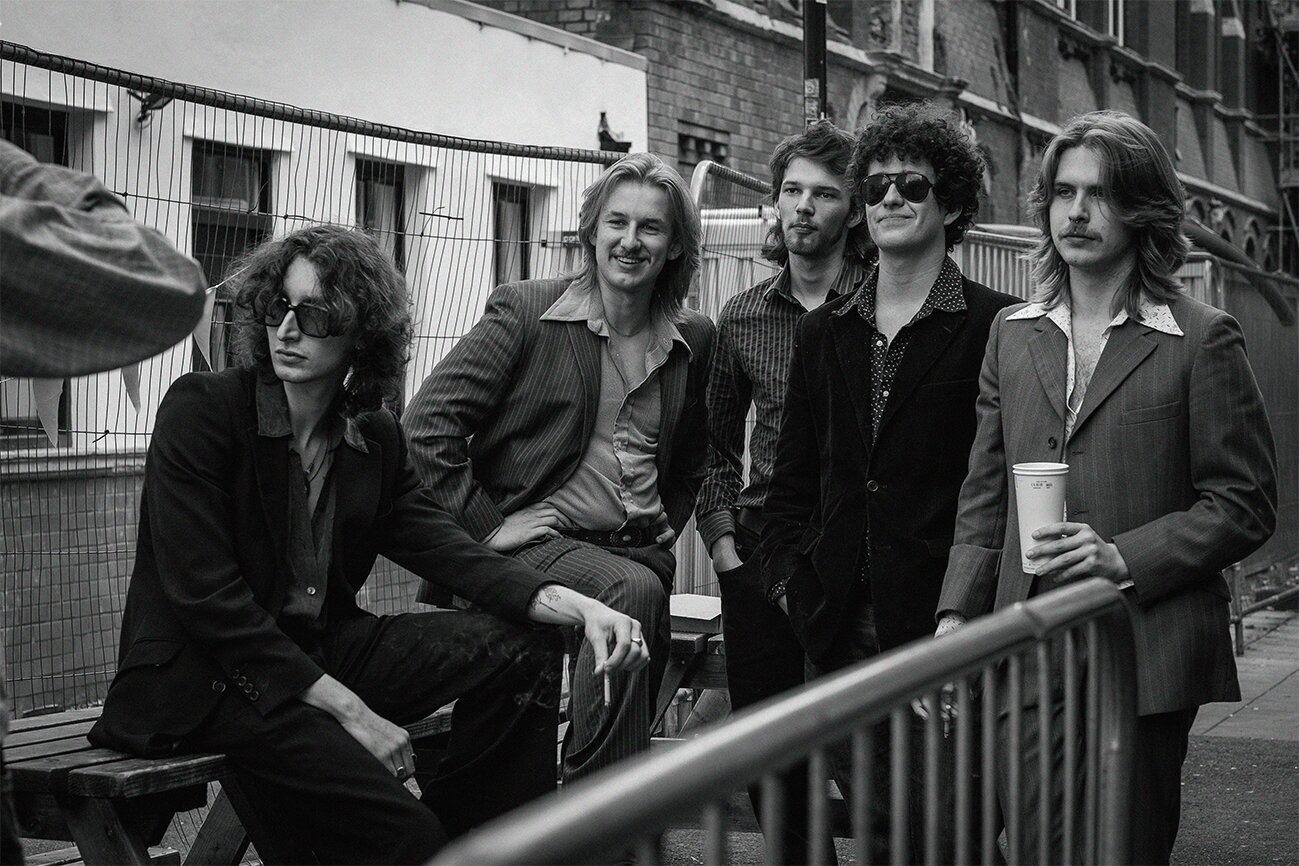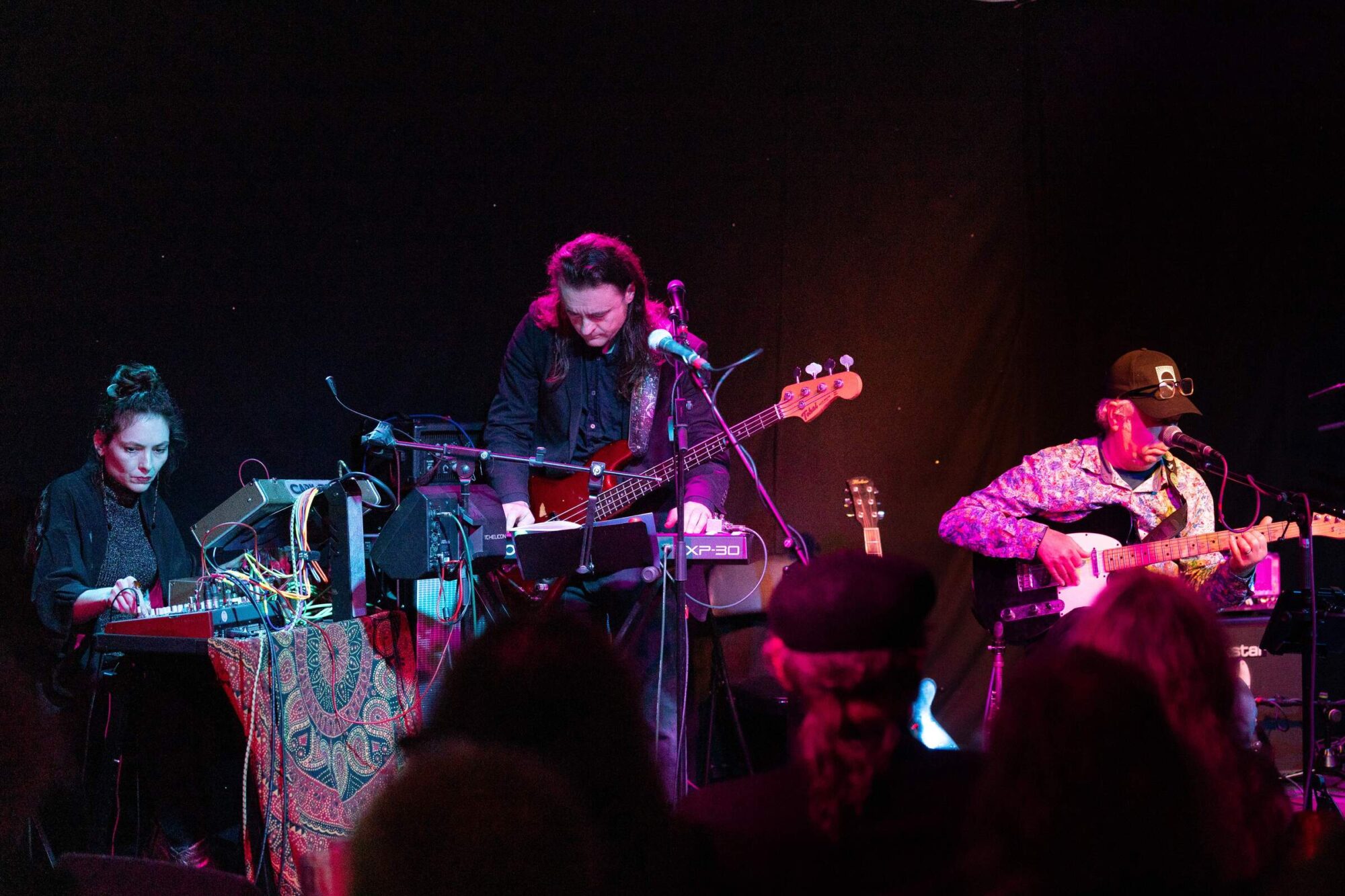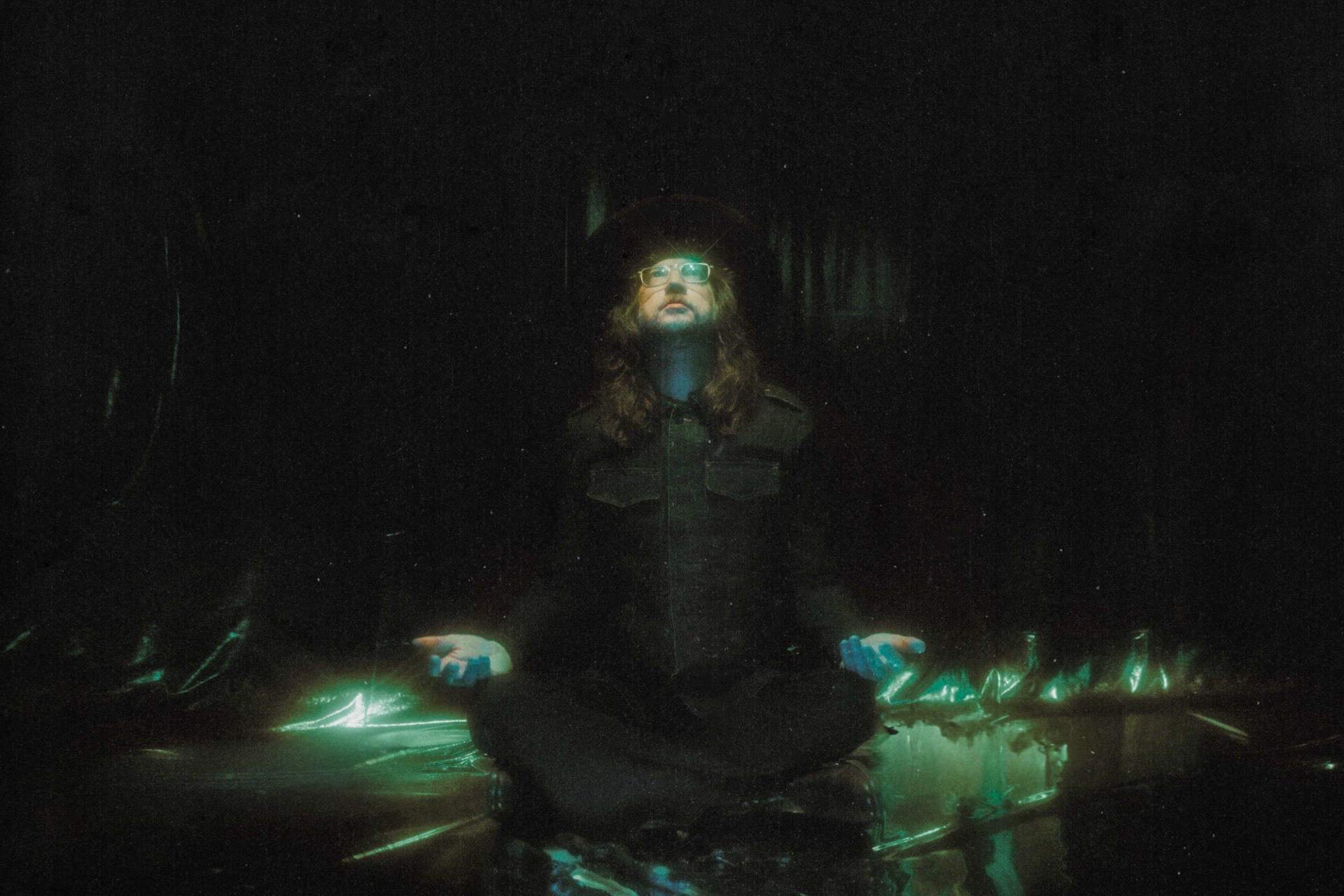FVRMN’s ‘Suicides’: A Conversation with J Holmes About Loss, Healing, and Music
On July 25, Steadfast Records and Sweet Cheetah Records drop ‘Suicides’, the new LP from FVRMN, the alternative punk band led by J Holmes (once part of The Ladderback).
This album comes from a deeply personal place… J’s recent battles with seizures forced him to face some heavy stuff about how our minds work, the chaos we all carry inside, and what it takes to pick up the pieces when people we care about are gone.
‘Suicides’ is a wild, sprawling record packed with huge songs and a massive sound that hits you right in the chest. It’s raw and honest, pulling you into J’s world with all its ups and downs.
Helping shape that sound are some killer guests: Mario Rubalcaba (Earthless, OFF!), whose drumming brings a loose but powerful vibe; Chris McQueen from Snarky Puppy; Leo Abrahams, adding eerie and beautiful solos; and Sean Husick (Milemarker, Ghost Work). Each of them adds their own flavor to this intense and emotional album.
‘Suicides’ is about struggle, survival, and finding a way through the mess. It’s the kind of record you want blasting loud, the kind that sticks with you long after the last note.
“Each time I had a seizure, it felt like another raw, thin layer was being peeled off and bringing me to a new sense.”
‘Suicides’ explores profound themes stemming from your recent onset of seizures, delving into metaphysical mentality and inner turbulence. Given the album’s expansive and adventurous nature, how did the band navigate the creative process to translate such a deeply personal and potentially challenging experience into something cohesive?
Evil Jay: It was a strangely natural progression in many ways. Through previous albums, there was a sense of working hard to create records that laid out a canvas for transition, change, points of impact on a map of time. This ‘Suicides’ album stems from a different place, a far stranger place than I could have imagined years ago. The seizure issue was a vivid backdrop curtain to the entire affair, and one which affected the process of the album. In fact, much of this album just grew out of a place in my head that was reflecting back on so many past decisions in my life that might have been different had I known what kind of set of controls I’d been born with or developed over time. It’s not meant to sound pretentious, but there was and is a massive metaphysical phase of my life which began with these seizures and somehow has led to bring us all here to this day. The fact that there is music from it is a small miracle in itself, as I really don’t have any real memory of composing these songs or lyrics. Most of them came through the hazy aftermath of certain episodes. Part of it may have been a certain mindset that I’ve been learning over the past few years, and that is to allow the good things to come to me and to focus any energy I may have on good energy. As I’ve learned to do that, the process somehow hits harder and is easier to navigate.
The description highlights a “monstrous production for maximum impact.” Can you tell us about the intentionality behind this massive sound? Was there a particular vision or mood you were aiming to evoke through the production choices, perhaps mirroring the intensity of the themes or aiming to create a sense of catharsis for the listener? And how did the contributions of renowned musicians like Leo Abrahams (known for his work with Brian Eno) and Mario Rubalcaba specifically influence or enhance the overall sonic weight and texture of ‘Suicides’?
I like playing with people who don’t sweat the technical stuff too much but just know how to lock in and let the song flow and breathe. Much to most people’s surprise, I’m not a real musician and I don’t know if I have an ear for proper production and sound design per se, but I do know what I like and I also like to be surprised. When this album was getting put to tape initially, I had a few old pedals lying around that I brought into the studio—nothing too serious or obscure, just a few ways to help improve that guitar tone. Listening back on Mario’s drums really helped me to slide into a smoother approach and a sound that left room for a sharper focus. He was able to approach it very loosely yet with a purposeful intensity, especially with Daniel’s bang-on bass.
But it was really Al Jacob from Warrior Studios in Chapel Hill, NC, who truly created this monstrous sound. Sean Husick had played drums on a few songs last year (including Moloch, which was included on the album) and he introduced me to Al. He reigned in the tattered edges and did wonders with the production. It was actually a bit of a revelation to hear how dynamic his ears had taken this sound. Grateful for that.
It was a deliberate choice to include Leo here, as atmospherics and tone can make or break an album for me. Leo is a master of not just ambience and texture, but also noise and personality. He plays the solos on both “One Silver Drop” and “Invitation Phase,” and it was thrilling to hear his take on the solos I had written.
‘Suicides’ is said to be about picking up the pieces of those who have left us behind. This suggests a journey of healing amidst loss. From a band perspective, how did you approach the emotional arc of the album? Are there specific tracks that represent different stages of this process, from initial shock to eventual acceptance or transformation? And considering the foundation of FVRMN, how did you balance the energy of punk with the more introspective and sprawling elements required to convey such a complex emotional narrative?
Whew. Good questions. Perhaps questions that I won’t be able to answer sufficiently.
As a start, the onset of the seizures really put me in a particular headspace, not just physically and mentally, but somewhere on the periphery of the unknown. I found myself in a deeply troubling spiritual corridor of change. I got sober, I was missing big moments with my kids, I was dealing with some intense experiences that one could describe as an identity crisis. Almost everything I thought I had known as myself was slowly being twisted into a new form. I was familiar with the concept of “ego death,” but this process felt like an “ego suicide.” Each time I had a seizure, it felt like another raw, thin layer was being peeled off and bringing me to a new sense. It wasn’t pleasant. In fact, it made me reflect a lot on what breaks us, what we make it through, how we survive, and what kind of empathetic understanding we can develop toward those who simply see no way out.
There’s a certain arc within the record where the title track screams out, “Suicide’s got me sane… suicide has finally got me sane.” I’m not sure if that’s a message from my subconscious to myself regarding the previously mentioned “ego-suicide” perspective, or if it’s an honest reflection on a real loop of thought that we sometimes all go through. When or if I actually go through with it, will I “feel” anything? Will I be relieved of this physical life? Will I be “sane”? It could very well be the thoughts of one residing too long within the shadow of life’s deep chasm.
Then to follow it up with ‘Too Innocent,’ which directly hits with the impact of being left behind and trying to deal with the sudden absence of someone who is adored. This brings a different focus to the sense of what we go through to help mend the threads of family and friends who all deal with so much during times like that. Just being there and helping to support the remaining members of your crew during such a dissonant, traumatic shift in orbit. But it’s also a matter of trying to come to terms with why a loved one would see the self-inflicted end as a reasonable way out.
These are complicated layers to get through.
With such an impressive roster of guest musicians—Mario Rubalcaba, Chris McQueen, Leo Abrahams, and Sean Husick—each bringing their unique expertise from diverse musical backgrounds, how did the collaborative dynamic unfold in the studio? Were there moments of unexpected synergy or happy accidents that arose from these different creative forces coming together? And did the presence of these particular artists inspire any new directions or explorations within FVRMN’s sound that you might not have pursued otherwise?
Definitely. This record felt a lot more “hand off” for me in terms of direction. Even I’m surprised listening back to it and the synergy and the grace and grit that managed to boil to the top.
Like I said, sometimes you simply have to open the gates and allow the good energy to flow down the river towards you.
Given the deeply personal origins of Suicides for J Holmes, and the album’s exploration of inner turbulence and metaphysical mentality, what do you hope listeners ultimately take away from this experience? Is there a particular message or feeling you wish to impart, or perhaps a conversation you hope to ignite about the themes presented?
Have you ever looked in the mirror and thought to yourself, “WHAT AM I?” You may be unrecognizable from the person you thought you were just weeks ago. I’ve been there and I’m still dealing with it. In fact, I think we all are in that kind of moment more than we wish to admit, and no amount of fame, food, drink, social media attention, religion, or even love can always get us through that. I know that I’ve always had a difficult time opening up about exactly how I feel and what kind of troubles are raging internally. But I’m hoping this album somehow hits a nerve with anyone who is dealing with seemingly unbearable burdens in their life. I hope it offers a few different perspectives from different sides of the mirror: the one that we see, and the reflection that also sees us.
Plus, I just hope that it goes down like a killer album that deserves to be played loud and sounds rad! Haha.
What’s next for you?
I’m constantly getting involved in musical projects these days. Last year, I also began releasing solo music under my own name and have been using that as a means to help raise money to support various charities around here in Japan. I’m also actively obsessed with energy and how we choose to channel our active spirit into our art, our language, and into others.
Last year, I began to realize that there is a purpose and a reason for meeting everyone in our life. I hope to be a small sliver of positivity and light when that happens, or at least a memorable source of noise.
Klemen Breznikar
FVRMN Facebook / Instagram / Bandcamp / YouTube
Steadfast Records Official Website / Facebook / Instagram / Bandcamp
Sweet Cheetah Records Official Website / Facebook / Instagram
FVRMN | Interview | Premiering New Album ‘Back To The Whip’




